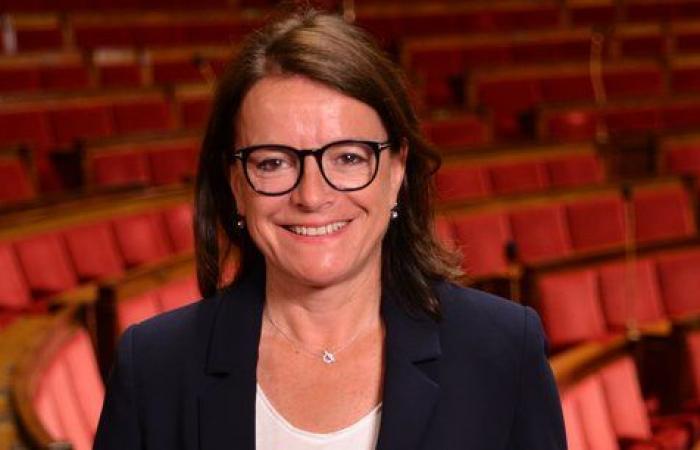The only Rennes survivor of Macronie in the 2022 legislative elections – which she narrowly won with 51.8% of the votes – Laurence Maillart-Méhaignerie did not arrive in an advantageous position. In the second constituency of Rennes, the leader of the Renaissance federation in Ille-et-Vilaine finds herself in a tight vote and in second position behind Tristan Lahais, her unsuccessful opponent two years ago, candidate of the New Front popular.
At the end of the first round of the early legislative elections, marked by a participation rate of 77%, the founder of the Génération.s movement, ally of EELV and current vice-president of culture of Rennes Métropole, took the lead with 42.31% of the votes. For her part, the outgoing MP is right behind him at 34.24%. In this constituency of 150,000 inhabitants, in the North-East and East of Rennes, (Cesson-Sévigné, Betton, Liffré…), where a mix of rural (Dingé) and urban communities, wealthy and more popular neighborhoods (150,000 inhabitants), it is a triangular which is looming for next Sunday. And for good reason, the RN candidate Bérénice Vanhaecke, looking for a job, also qualified for the second round with 17.43% of the votes.
In the first round, six candidates were in the running. The representatives of the Republicans (7.2%), Workers’ Struggle (1.03%) and an independent candidate (0.09%) were defeated on Sunday evening. Laurence Maillart-Méhaignerie has a limited reserve of votes if ever the voters of the Republican camp prefer the RN.
In the eighth constituency (cantons of Mordelles, Rennes Centre, Rennes Centre-Ouest, Rennes Nord, Rennes Sud-Ouest), the other Ensemble candidate, Hermine Mauzé, was swept away in the first round by the outgoing deputy Mickaël Bouloux (New Popular Front), elected with 50.87% of the votes and in the lead in the eight municipalities.
During the European elections, Rennes maintained its atypical position as a land of the left by containing the extreme right to a score below 10% and by placing the list of Raphaël Glucksmann (supported by Nathalie Appéré, the mayor of Rennes) in first place with 24.93% of the votes cast.






